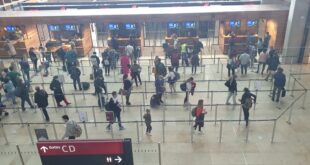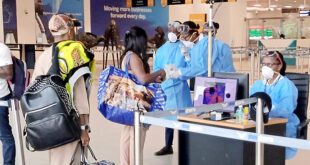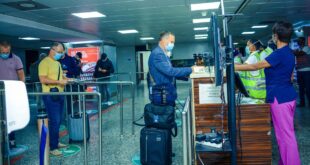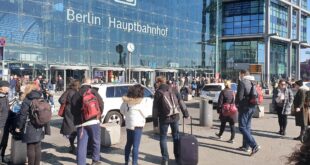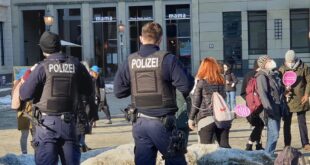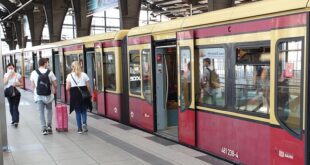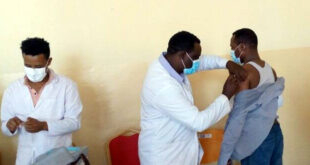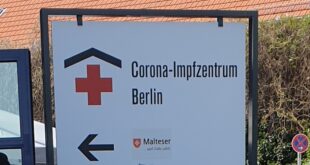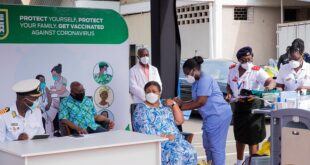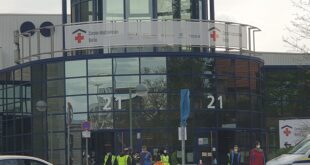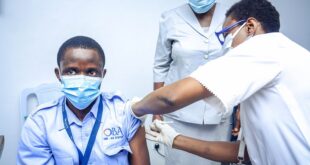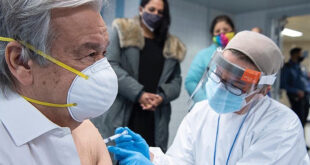Although the exponential rise in new infections has been halted since the partial lockdown began in early November, the daily cases are still far too high. The partial lockdown has been as a result only a partial success, Chancellor Angela Merkel said in Berlin on Wednesday. The November measures could therefore not be relaxed yet, she added, while speaking to the press.
After seven hours of negotiations via a virtual conference on Wednesday, Chancellor Merkel and the Premiers of the Federal States (Länder) had agreed that the lockdown measures, scheduled to end on 30 November, will initially be extended until 20 December. Some of the measures, such as contact restrictions, will be somewhat relaxed during Christmas holidays, while others will apply until the end of the year.
Here’s an overview of the decisions taken by the Federal and State Governments on Wednesday:
1. Partial Lockdown
The partial lockdown measures in effect since 4 November have been extended until 20 December.
2. Contact Restrictions
From 1 December, private gatherings with friends, relatives and acquaintances will be limited to a maximum of five people from one’s own household and one other household, that is, a maximum of five persons from two households. Children under 14 years of age are exempted from the rule.
Contact restrictions will be relaxed over the holidays: from 23 December to 1 January, meetings “in the immediate family or circle of friends” with up to a maximum of ten people are permitted. Children under 14 years of age are exempted from the regulation. With the temporary relaxation, the Federal Government and the States want to make “celebrations in the circle of family and friends, albeit on a smaller scale” possible. “Because these days are particularly important for family and social cohesion,” they said.
This year, the Christmas holidays are scheduled to start on 19 December all over Germany.
December 19 is the Saturday before Christmas Eve, which this year falls on a Thursday. With the exception of Bremen and Thuringia, the holidays are now to begin on this day everywhere in the country. According to the decision taken on Wednesday, the two states reserve the right to “regulate the start of the holidays on an individual basis”.
3. New corona incidence limit
The Federal and State Governments agreed to tighten the rules for areas with particularly high corona infection numbers: From an incidence value of 200 (that is, 200 new infections per 100,000 inhabitants per week), additional stringent measures will come into force. These include regulations affecting schools and retail trade as well as more extensive personal contact restrictions.
4. Retail Trade
Henceforth, one customer per 20 square metres will be permitted in shops with a total area of 800 square metres or more. Up to now, the rule of one customer per ten square metres has applied; this rule will remain in place for smaller shops with trading floor lesser than 800 square metres.
5. Mouth and Nose Protection (Mask)
The obligation to wear masks will apply thus from 1 December as follows:
- In enclosed areas accessible to the public or as part of a visiting or customer traffic.
- Places frequented by the public in city centres, including open-air public places where people are either in a confined space or not just temporarily. The exact places and times are to be determined by local authorities.
- On public transport
- At the workplace, except if a minimum distance of 1.5 metres is maintained
6. Gastronomy, culture, leisure
Recreational and cultural facilities and the gastronomy trade (Bars, Cafés and Restaurants) will remain closed, initially until 20 December, but in the end probably beyond the turn of the year.
7. Ban on firecrackers
Private fireworks are allowed, but will be prohibited in busy streets and squares. This is to avoid large crowds of people congregating on New Year’s Eve. The exact formulation of the rule is left to the cities and municipalities, but the federal and state governments recommend that New Year’s Eve fireworks be dispensed with altogether this year. Public fireworks are prohibited.
8. Corona tests
There should be more tests: The federal government wants to make corona tests possible for people with cold symptoms, and the states are increasingly using rapid antigen tests to detect infection chains.
9. Monitoring compliance
The federal government wants to monitor compliance with the lockdown rules more closely, for example, by means of checks independent of suspicion.
10. Railways
Additional measures are planned by Deutsche Bahn in the corona crisis. For example, the “seat capacity” is to be increased significantly to allow even more distance between passengers. It is considered conceivable to use more trains. At the same time, the reservation of seats is to be limited.
Mask checks are to be further intensified so that far more long-distance trains can be checked every day.
11. Schools, day care centres, universities
Childcare facilities and schools will remain open in principle.
Important: From a 7-day incidence of over 200 new infections per 100,000 inhabitants, additional measures are to be implemented “school-specific”. One possibility: Alternate teaching from the 8th class onwards (except for final classes). This means that one half of the class is on-site at the school, the other half is added via video conference.
With an incidence value of significantly more than 50, where no distance can be maintained, compulsory masking should be introduced in class rooms from 7th grade onwards.
If a pupil tests positive, they should be sent on a five-day quarantine together with their classmates – usually the whole class. The days at the weekend count. Afterwards a quick test decides if they should resume.
Colleges and universities should generally switch to digital teaching from December onwards – with the exception of laboratory work, internships, practical training periods and examinations.
—
According to the decision of the meeting, the states will in future be able to decide, depending on the infection situation, whether to relax or tighten measures.
On Wednesday morning, Robert Koch Institute, Germany’s centre for disease control and prevention, had reported more than 18,500 new infections, a thousand cases more than a week ago. In addition, a new peak was recorded with 410 deaths related to the coronavirus infection.
“The situation does not allow us to lift the November measures,” said Merkel. The partial lockdown had only brought partial success: it had prevented the hospital wards from being overwhelmed and many people from dying. But that was not enough, she said. The country is still “far too far” from the target of less than 50 new infections per 100,000 inhabitants within seven days. “Now it still depends on each and every one of us,” said the chancellor. “We need a renewed effort.”
Femi Awoniyi
READ ALSO Corona Lockdown: These rules apply in Germany in November
 THE AFRICAN COURIER. Reporting Africa and its Diaspora! The African Courier is an international magazine published in Germany to report on Africa and the Diaspora African experience. The first issue of the bimonthly magazine appeared on the newsstands on 15 February 1998. The African Courier is a communication forum for European-African political, economic and cultural exchanges, and a voice for Africa in Europe.
THE AFRICAN COURIER. Reporting Africa and its Diaspora! The African Courier is an international magazine published in Germany to report on Africa and the Diaspora African experience. The first issue of the bimonthly magazine appeared on the newsstands on 15 February 1998. The African Courier is a communication forum for European-African political, economic and cultural exchanges, and a voice for Africa in Europe.





